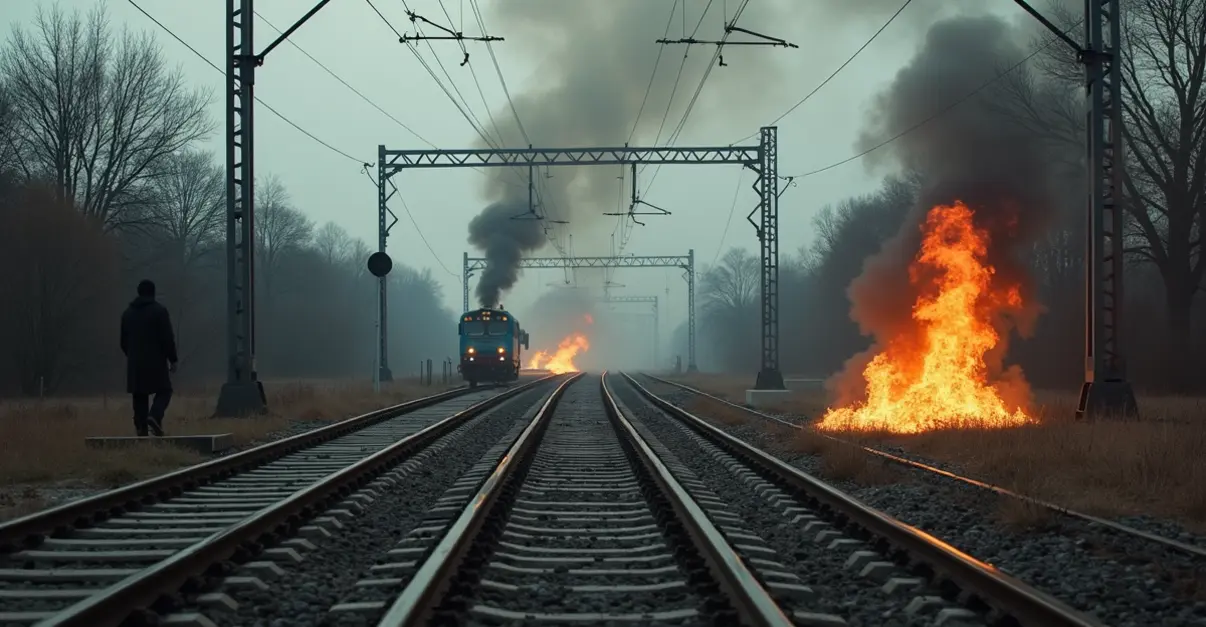Polish PM Donald Tusk confirms railway explosion near Warsaw-Lublin line was sabotage targeting Ukraine aid route. No injuries reported, investigation ongoing amid concerns about Russian hybrid warfare tactics.

Explosion Damages Key Polish Railway Line
Polish Prime Minister Donald Tusk has confirmed that an explosion on a strategic railway line in eastern Poland was an act of sabotage, describing it as 'an unprecedented act of sabotage targeting directly the security of the Polish state and its civilians'. The incident occurred on November 17, 2025, when an explosive device damaged railway tracks near the village of Mika, located between Warsaw and Lublin.
The explosion was discovered after a train driver reported irregularities on the route early Sunday morning. Fortunately, no passengers or railway personnel were injured in the incident. Later investigations revealed additional damage on another section of the same strategic route closer to Lublin.
Crucial Supply Route for Ukraine
The targeted railway line serves as a vital transportation corridor for military and humanitarian aid to Ukraine. 'This route is critically important for delivering Western aid to Ukraine,' Tusk emphasized during his visit to the damaged site. The Warsaw-Lublin line connects to the Dorohusk border crossing, making it a key artery for supplies entering Ukraine from NATO countries.
Since Russia's full-scale invasion of Ukraine in 2022, Poland has become a crucial transit hub for Western military assistance. According to Euractiv, this incident represents the latest in a series of sabotage attempts against Polish infrastructure supporting Ukraine.
Military Response and Investigation
Polish authorities have launched a comprehensive investigation into the sabotage. Defense Minister Wladyslaw Kosiniak-Kamysz deployed military units to inspect approximately 75 miles of track running to the Polish town of Hrubieszow near the Ukrainian border. The Internal Security Agency and prosecutor's office are leading the criminal investigation.
Interior Minister Marcin Kierwinski echoed the sabotage assessment, stating there is 'no doubt this was sabotage'. Emergency services remain at the scene assessing the damage and ensuring safety measures are in place.
Pattern of Russian Hybrid Warfare
While Tusk did not immediately name specific suspects, the incident fits a pattern of Russian hybrid warfare tactics against Ukraine's allies. Poland has previously accused Russia of orchestrating sabotage, cyberattacks, and drone incursions. Since the invasion began, Polish authorities have detained dozens of individuals suspected of sabotage or espionage for Russia.
As reported by ABC News, this incident has been described as a 'new form of hybrid warfare' amid growing concerns about Russian-linked aggression across the European Union.
Security Implications and Response
The sabotage attempt has raised significant security concerns within Poland and among NATO allies. Tusk vowed that Poland will 'catch the perpetrators, regardless of who their backers are'. The prime minister's strong response underscores the seriousness with which Poland views threats to its critical infrastructure.
This incident comes as Poland has been on high alert since September 2025, when Russian-origin drones entered Polish airspace from Belarus. The country has strengthened its border security and increased military presence along its eastern flank in response to these security challenges.
Despite the damage, railway operations continue on adjacent tracks, though authorities have implemented enhanced security measures along the entire route. The investigation continues as Polish officials work to identify those responsible and prevent future attacks on critical infrastructure.

 Nederlands
Nederlands
 English
English
 Deutsch
Deutsch
 Français
Français
 Español
Español
 Português
Português









